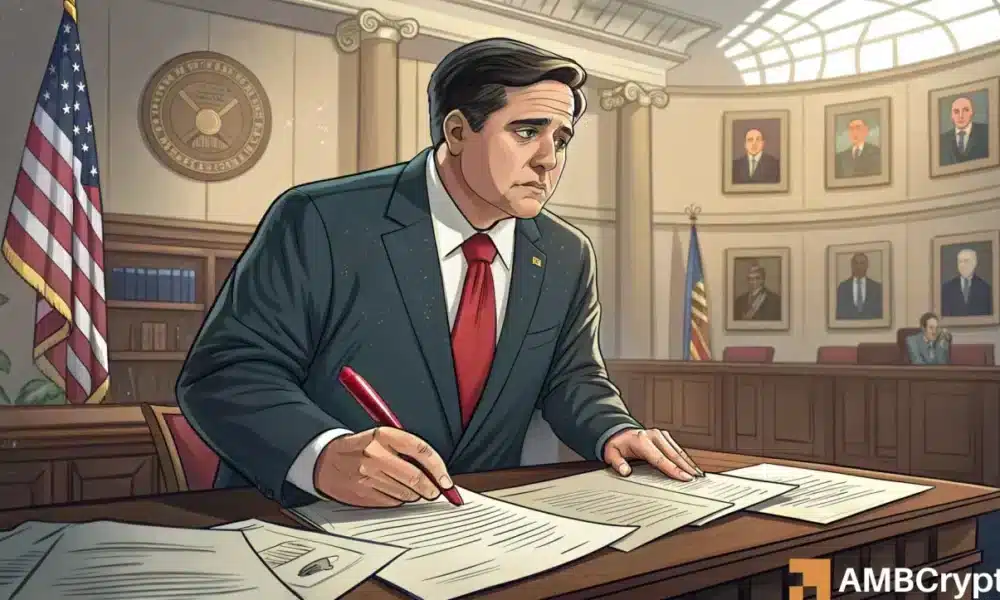- Arizona’s Bitcoin reserve bill was vetoed despite passing a narrow House vote.
- North Carolina advances crypto investment legislation amid stalled efforts in other U.S. states.
As interest in Bitcoin [BTC]’s role in state-level financial planning grows, Arizona briefly captured national attention with its bold proposal.
Arizona pulls back Bitcoin Reserve bill
The state’s House narrowly passed Senate Bill 1025, the “Arizona Strategic Bitcoin Reserve Act,” which aimed to establish Bitcoin holdings within Arizona’s official reserves.
The legislation would have allowed state officials to manage a digital assets reserve funded through seized monies, positioning Arizona as a pioneer among U.S. states.
However, the momentum was halted when Governor Katie Hobbs vetoed the bill, abruptly ending the effort to integrate Bitcoin into the state’s financial strategy.
Hobbs wrote in a statement aimed at Warren Petersen, the President of the Arizona Senate, and said,
“Today, I vetoed Senate Bill 1025. The Arizona State Retirement System is one of the strongest in the nation because it makes sound and informed investments.”
She added,
“Arizonans’ retirement funds are not the place for the state to try untested investments like virtual currency.”
What’s more?
The Arizona House’s narrow approval of the Bitcoin reserve bill on the 28th of April marked a significant step toward digital asset integration at the state level.
Despite this progress, Governor Katie Hobbs followed through on her earlier stance, vetoing the bill due to the absence of bipartisan consensus on disability funding.
She had earlier stated,
“Any bill not already on my desk will be vetoed until we have a serious, bipartisan funding solution that protects health care for Arizonans with disabilities.”
Meanwhile, a related proposal, SB1373, which seeks to allow the state treasurer to invest up to 10% of Arizona’s rainy-day fund in digital assets like Bitcoin, remains pending a final vote.
Other states and the federal level status on Bitcoin Reserve
Arizona’s attempt mirrors a broader trend across the U.S., where similar legislative efforts in states like Oklahoma, Montana, South Dakota, and Wyoming have also failed to gain traction.
While Arizona’s Bitcoin reserve proposal was vetoed, North Carolina is advancing with a more measured approach.
On the 30th of April, the state’s House passed the Digital Assets Investment Act, paving the way for the treasurer to allocate up to 5% of select funds into approved cryptocurrencies.
The bill now awaits consideration in the Senate.
These state-level initiatives echo a broader narrative playing out at the federal level, where former President Donald Trump and key Republican allies have advocated for a Strategic Bitcoin Reserve.
Despite an executive order issued in March, market sentiment, reflected in Polymarket data, showed zero confidence that such a reserve would materialize within Trump’s first 100 days, signaling skepticism around rapid federal adoption.

